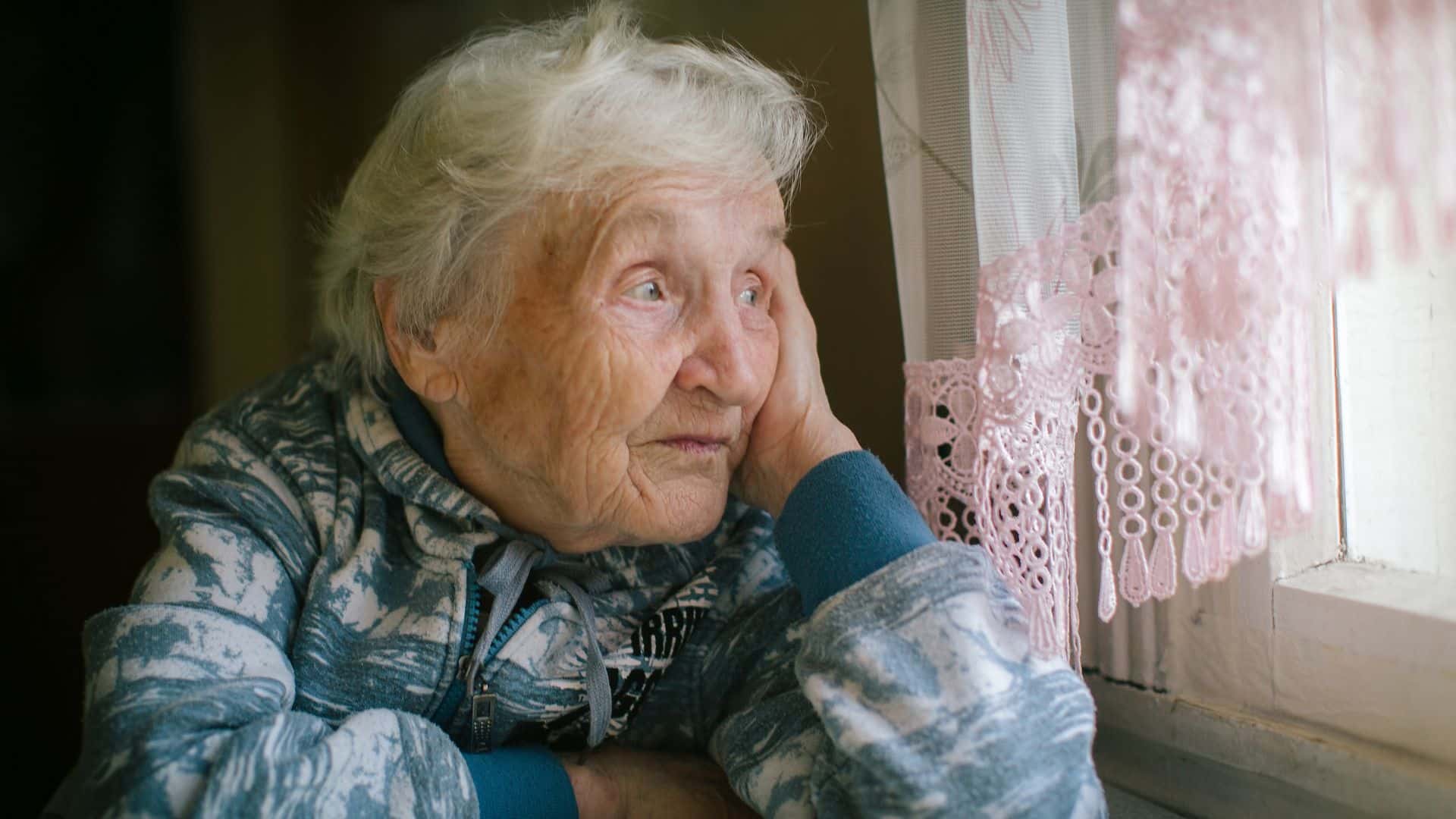Welcome to our blog post on dementia and assisted living! As we journey through life, it's important to be equipped with knowledge and understanding when faced with the challenges of aging. Dementia is a condition that affects millions of individuals around the world, particularly in their later years.
In this article, we will dive deep into what dementia is, explore the various types of dementia, and provide valuable insights on how to maintain dignity and wellbeing for those living with this condition in assisted living facilities. So grab a cup of tea or coffee, sit back, and let's embark on this enlightening journey together!
What is Dementia?
Dementia is a complex and progressive condition that affects the brain, causing a decline in cognitive abilities. It goes beyond normal forgetfulness associated with aging, impacting memory, thinking, behavior, and the ability to perform daily tasks.
The most common cause of dementia is Alzheimer's disease, accounting for about 60-80% of cases. However, there are other types of dementia as well, such as vascular dementia caused by reduced blood flow to the brain or Lewy body dementia characterized by abnormal protein deposits in nerve cells.
Symptoms can vary depending on the type of dementia but often include memory loss, confusion, difficulty communicating or finding words, disorientation in familiar environments, mood swings or changes in personality. As the condition progresses over time, individuals may require assistance with basic activities like eating and dressing.
It's important to remember that every person's experience with dementia is unique. While it can be challenging for both individuals living with dementia and their loved ones/caregivers alike; understanding what this condition entails will help us provide better support and care for those affected.
The Different Types of Dementia
Dementia is a complex condition that affects millions of people worldwide, particularly the elderly population. It is important to understand that dementia is not a single disease but rather an umbrella term for various progressive brain disorders. These disorders all share one common symptom: a decline in cognitive function.
The different types of dementia can vary in terms of their causes and symptoms. The most common type is Alzheimer's disease, accounting for around 60-80% of cases. This form of dementia typically starts with memory loss and gradually progresses to affect other cognitive abilities.
Vascular dementia, on the other hand, occurs when there are problems with blood flow to the brain, often as a result of strokes or other vascular conditions. This type can cause difficulties with thinking and reasoning skills.
Lewy body dementia is characterized by the presence of abnormal protein deposits called Lewy bodies in the brain. People with this type often experience hallucinations and fluctuations in alertness.
Frontotemporal dementia primarily affects areas of the brain responsible for personality, behavior, and language. Symptoms may include changes in social behaviors, speech problems, or difficulty understanding language.
Other less common types include Parkinson's disease dementia (occurring alongside Parkinson's), mixed dementias (a combination of different types), and Creutzfeldt-Jakob disease (a rare degenerative disorder).
Understanding these various forms helps caregivers tailor individualized care plans based on specific needs and challenges associated with each type of dementia. By recognizing these distinctions, families can provide appropriate support while ensuring their loved ones' wellbeing throughout their journey with Dementia.

Activities that maintain dignity and wellbeing for elderly with Dementia
Engaging in meaningful activities is crucial for maintaining the dignity and wellbeing of elderly individuals with dementia. These activities not only provide stimulation and purpose but also enhance their overall quality of life.
One activity that can promote a sense of accomplishment and satisfaction is art therapy. This creative outlet allows seniors to express themselves through painting, drawing, or other artistic mediums. It stimulates cognitive functions, encourages self-expression, and provides an opportunity for social interaction.
Another beneficial activity is reminiscence therapy. By looking through old photo albums or engaging in conversations about past experiences, seniors with dementia can reconnect with cherished memories. This not only helps them maintain their identity but also fosters a sense of belonging and validation.
Physical exercise should not be overlooked either. Gentle exercises like walking or stretching can improve balance, flexibility, and muscle strength while reducing agitation and restlessness often associated with dementia.
Music therapy has shown great promise as well. Listening to familiar songs or playing simple instruments can evoke emotions, trigger memories, reduce anxiety levels, and even improve communication skills for those who have difficulty expressing themselves verbally.
Engaging in sensory activities such as gardening or aromatherapy can stimulate the senses positively. The soothing scents of lavender or the feel of soil between one's fingers can bring comfort and relaxation to individuals living with dementia.
By incorporating these activities into daily routines at assisted living facilities or home care settings tailored specifically for individuals with dementia enables them to maintain their dignity while promoting overall wellbeing.
Appropriate and effective communication strategies for Seniors in with Dementia
Communication is a vital aspect of our daily lives, allowing us to connect with others and express our thoughts and emotions. However, for seniors living with dementia, communication can become challenging. As the disease progresses, individuals may experience difficulty in understanding and conveying information effectively.
To ensure effective communication with seniors living with dementia, it is essential to adopt appropriate strategies. Maintaining a calm and positive demeanor is crucial. Speaking slowly and clearly while using simple language helps facilitate understanding. Avoiding complex sentences or questions that require multiple responses can also be beneficial.
Non-verbal cues play an integral role in communication as well. Maintaining eye contact, using facial expressions, and gestures can help convey emotions more clearly. Additionally, creating a peaceful environment free from distractions allows seniors to focus their attention on the conversation at hand.
Active listening is another key component in effective communication strategies for seniors with dementia. Patience is necessary when engaging in conversations as they may need extra time to process information or find the right words.
Moreover, utilizing visual aids such as photographs or written prompts can assist in enhancing comprehension and memory recall during discussions.
Implementing these appropriate communication strategies enables individuals living with dementia to feel understood and valued despite their challenges. By making adjustments tailored to their needs, we foster meaningful connections that promote overall well-being.
Develop your skills and knowledge in support work for older people. Community Care Toolkit provides an online learning experience that helps you develop your skills and learn new ones.
Working with changed behaviours in older people with Dementia
Working with changed behaviors in older people with dementia can be challenging, but it is crucial to approach the situation with empathy and understanding. Dementia can cause individuals to exhibit various behavioral changes such as aggression, agitation, confusion, wandering, or even personality changes.
When faced with these challenges, it is essential to remember that the person you are caring for is not intentionally behaving this way. They are simply experiencing symptoms of their condition. Patience and compassion are key when working through these changed behaviors.
One effective strategy is to create a calm and structured environment. Providing familiar routines and maintaining a consistent schedule can help reduce anxiety and confusion for individuals with dementia. It's also important to ensure their physical needs are met – hunger or discomfort can often contribute to difficult behaviors.
Engaging in meaningful activities tailored to their interests and abilities can enhance well-being while reducing disruptive behavior. Activities such as music therapy, art projects, gentle exercise programs or reminiscence therapies have been shown to positively impact individuals living with dementia.
Additionally, clear communication becomes critical when interacting with someone who has dementia. Using simple language, speaking slowly and calmly while maintaining eye contact will make it easier for them to understand you. Avoid arguing or correcting them; instead redirect their attention if they become agitated or upset.
It's imperative not only for caregivers but also family members involved in providing care for loved ones living with dementia should seek support from professionals experienced in elderly care services like assisted living communities specializing in memory care units.
In conclusion
While working through changed behaviors associated with dementia may be challenging at times, approaching the situation empathetically—creating a structured environment, engaging in meaningful activities, practicing clear communication, and seeking professional support—can greatly improve the overall well-being of older adults affected by this condition.
Assisted living facilities equipped with specialized memory care units can provide a safe and nurturing environment for individuals with dementia, ensuring their physical and emotional needs are met.

Pros and Cons of assisted living
Assisted living is a popular option for seniors with dementia who require some level of assistance but still want to maintain their independence. Like any other decision, there are pros and cons to consider.
One of the main advantages of assisted living is the availability of round-the-clock care. Trained professionals are on hand to support residents with their daily activities such as bathing, dressing, and medication management. This provides peace of mind for both the individual with dementia and their family members.
Additionally, assisted living communities offer a range of socialization opportunities. Residents have access to various recreation programs and can engage in activities that cater specifically to their interests. This helps combat loneliness and isolation often experienced by individuals with dementia.
Another benefit is that these facilities provide a safe environment designed specifically for seniors with cognitive impairments. The physical layout includes features like handrails, non-slip flooring, and emergency call systems which minimize the risk of accidents or wandering.
However, it's important to note that assisted living also has its drawbacks. One potential downside is the cost associated with this type of care. Depending on location and level of services needed, expenses can quickly add up.
Furthermore, transitioning from familiar surroundings into an unfamiliar environment can be unsettling for individuals with dementia. Adjusting to new routines and being surrounded by strangers may cause confusion or agitation initially.
While staff members in assisted living communities strive to provide personalized attention, they may not always have enough time or resources available to meet every resident's specific needs at all times.
In conclusion
Overall, dementia-friendly assisted living can provide invaluable support and enhance quality of life for elderly individuals with dementia.
However, it's essential to carefully weigh the pros and cons before making a decision.
In some cases, it may be tempting to opt for in-home care or other alternatives that cater more directly to someone's preferences and circumstances.
Whatever you choose, it's important to prioritize the safety, well-being, and individual.
What are the warning signs of Dementia?
What are the warning signs of Dementia? It's important to be aware of the early indicators that may suggest a person is developing dementia. While memory loss is commonly associated with dementia, there are other signs to look out for as well.
One potential warning sign is difficulty with problem-solving or planning. You may notice that your loved one struggles to follow a recipe they once knew by heart or has trouble managing their finances. This can be frustrating and confusing for them.
Another red flag could be changes in mood or personality. If you notice significant shifts in your loved one's demeanor, such as becoming more irritable, withdrawn, or suspicious, it could be related to dementia.
Pay attention to any confusion about time and place. People with dementia may become disoriented even in familiar surroundings or lose track of dates and appointments.
Difficulty communicating effectively can also be an early indication of dementia. Your loved one might struggle to find the right words or have trouble following conversations.
Keep an eye out for issues with motor skills and coordination. A person experiencing early-stage dementia may have trouble navigating stairs, using utensils while eating, or performing daily tasks that were once easy for them.
While these signs don't necessarily mean someone has dementia, it's essential not to ignore them if they persist over time. Consulting a healthcare professional will help determine the cause behind these symptoms and provide appropriate guidance moving forward.
How to get help for Dementia
If you or a loved one has been diagnosed with dementia, it's important to know that help is available. Getting the right support and assistance can make a significant difference in managing the challenges of this condition.
One of the first steps in seeking help for dementia is to consult with a healthcare professional who specializes in memory disorders. They can provide an accurate diagnosis and recommend appropriate treatment options. It may also be helpful to reach out to local organizations or support groups that are dedicated to helping individuals with dementia and their families.
In addition to medical professionals, there are various resources available online and in your community that can offer guidance and support. These resources often include information about dementia care, tips for caregivers, and strategies for improving quality of life for those living with the condition.
When considering long-term care options, such as assisted living facilities specifically designed for individuals with dementia, it's important to do thorough research. Look into different facilities' qualifications, staff-to-resident ratios, specialized programs offered, safety measures taken, and overall reputation.
Financial assistance may also be available through government programs or private insurance plans. Talking to a financial advisor or social worker can help you navigate these complex systems and find potential sources of funding.
Remember that getting help for dementia is not just about finding practical solutions; it's also about emotional support. Reach out to friends and family members who understand what you're going through or consider joining a caregiver support group where you can connect with others facing similar challenges.
Navigating the journey of dementia can feel overwhelming at times but remember: You don't have to face it alone. There are numerous resources available that can provide both practical assistance and emotional comfort along the way.

Alternatives to assisted living
When it comes to caring for a loved one with dementia, assisted living may not always be the best option. It's important to explore alternative options that can provide the necessary care and support while also maintaining the individual's independence and dignity.
One alternative to assisted living is in-home care. This allows seniors to remain in the comfort of their own home while receiving assistance with daily activities such as bathing, dressing, medication management, and meal preparation. In-home caregivers can provide companionship and engage individuals in activities tailored to their interests and abilities.
Another option is adult day care. This provides a structured environment where seniors can socialize with others while participating in various therapeutic activities. Adult day programs often offer respite for family caregivers who need a break from caregiving responsibilities.
For those who require more intensive medical care, skilled nursing facilities or memory care communities may be appropriate alternatives. These facilities have staff trained specifically in caring for individuals with dementia and can provide round-the-clock supervision and support.
It's essential to consider the unique needs of your loved one when exploring alternatives to assisted living. Each person’s situation is different, so it’s crucial to evaluate all available options before making a decision. Consulting with healthcare professionals or reaching out to local eldercare agencies can help you navigate through these choices successfully.
Conclusion
Dementia is a challenging condition that affects millions of elderly individuals around the world. Assisted living can provide a supportive and safe environment for seniors with dementia, offering specialized care and services to meet their unique needs. However, it is important to carefully consider the pros and cons of assisted living before making any decisions.
Remember, early detection and intervention are key when it comes to managing dementia. Recognizing the warning signs and seeking help promptly can make a significant difference in the quality of life for both individuals with dementia and their caregivers.
If you or someone you know is experiencing symptoms of dementia, don't hesitate to reach out for support. There are numerous resources available such as healthcare professionals specializing in geriatric care, support groups for caregivers, and organizations dedicated to raising awareness about dementia.
While assisted living may be an appropriate option for some families, it's essential to explore all alternatives based on individual circumstances. Home care services or memory care communities could also provide suitable options depending on the level of assistance required.
Providing compassionate care while maintaining dignity and wellbeing should be at the forefront when addressing the needs of older adults with dementia. With proper understanding, effective communication strategies, engaging activities tailored to their abilities, and access to professional assistance if necessary; seniors with dementia can continue enjoying fulfilling lives within an assisted living setting or other suitable arrangements.
Remember that each person's journey with dementia is unique - approach them with empathy, patience, and respect every step of the way.
Develop your skills and knowledge in support work for older people. Community Care Toolkit provides an online learning experience that helps you develop your skills and learn new ones.
